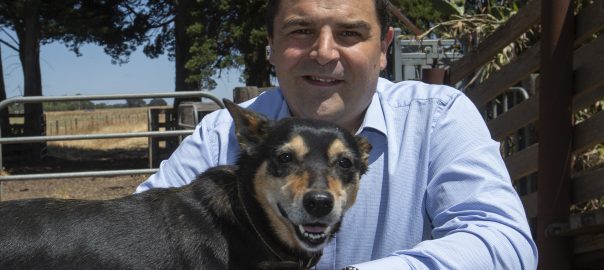PASIN BRINGS PARLIAMENTARY COMMITTEE TO SA

Chair of the Federal Parliament’s Select Committee into Regional Australia and Member for Barker Tony Pasin, says the House Select Committee will visit South Australia next week as part of the inquiry.
Grain, legume growers and food and wine producers as well as community members from South Australia will have the chance to speak with the committee about their region and their success stories.
Mr Pasin said his home state is full of innovative people making the most of the regions.
“I’m proud to bring the Committee to my home state to see and hear these stories first hand,” Mr Pasin said.
“We’ll bring together the stories and experiences of how our local regional economies are diversifying, how regional industries are finding their way, and how regional communities are boosting their resilience and working together to secure their future,” Mr Pasin said.
“Among others, we’ll be meeting with the people from Pangkarra Foods in Rochester to learn more about businesses that grow and process their own products, and Myora Farm to witness first-hand the use of advanced technology in pig farming.”
“After some site visits with primary producers, we’ll be bringing everyone together for roundtable discussions to really flesh out what’s working in regional South Australia,” Mr Pasin said.
Mr Pasin is encouraging community members to attend and speak to the Committee as part of the roundtable discussions.
Roundtables
Date: Wednesday 18 March | Time: 2.00pm (Food and
Wine) 3.00pm (Regional Community)
Location:Novotel Barossa Valley , Shiraz Room A, 42 Pioneer
Avenue via Golflinks Rd, Rowland Flat, Barossa Valley, SA
Public Hearing
Date: Thursday 19 March | Time 2.00pm
Location: The Barn – Oak Tree Room, 747 Glenelg River Rd, Mount Gambier,
SA
The roundtable discussions will be broadcast live at aph.gov.au/live.
Terms of Reference
- a
Select Committee on Regional Australia be appointed to inquire into
and report on;
- Examining the effectiveness of existing regional service delivery and development programs;
- Examining the contribution and role of regional Australia to our national identity, economy and environment;
- Promoting the development of regional centres, cities, towns and districts including promoting master planning of regional communities;
- Promoting private investment in regional centres and regional infrastructure;
- Examine the key drivers for unlocking decentralisation opportunities for both the private and public sectors;
- Promoting the competitive advantages of regional location for businesses;
- Investigate the development of capital city size regional centres in strategic locations and the benefits this offers regional cities, capital cities, the Australian economy and lifestyle;
- Examine the potential for new developments, towns and cities to be built in regional Australia;
- Examining international examples of nations who have vast and productive regional areas, which are sparsely populated;
- Examining ways urbanisation can be re-directed to achieve more balanced regional development;
- Identifying the infrastructure requirements for reliable and affordable health, education, transport, telecommunications, clean energy, water and waste in a new settlement of reasonable size, located away from existing infrastructure; and
- Consider other measures to support the ongoing growth and sustainability of regional Australia.








